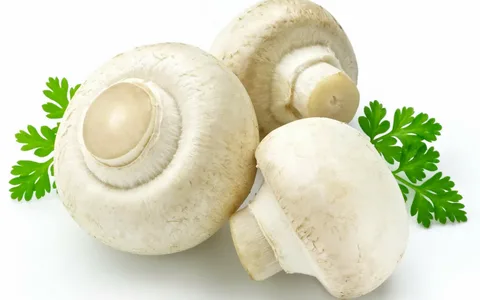Introduction
Mushrooms have been cherished for centuries for their unique taste, texture, and nutritional benefits. Among the plethora of mushroom varieties, white mushrooms stand out as one of the most versatile and widely consumed types. In this comprehensive guide, we will delve into the nutrition profile, health benefits, culinary uses, and FAQs surrounding white mushrooms, providing you with all the essential information to incorporate these fungi into your diet and lifestyle.
Understanding White Mushrooms White mushrooms, scientifically known as Agaricus bisporus, belong to the fungi kingdom and are widely cultivated worldwide. They are commonly found in grocery stores, farmers’ markets, and even in the wild. White mushrooms are characterized by their pale color, smooth texture, and mild flavor, making them a popular choice for various culinary applications.
Nutrition Profile of White Mushrooms White mushrooms are not only delicious but also pack a nutritional punch. Here’s a breakdown of their key nutritional components per 100 grams serving:
- Calories: Approximately 22 calories
- Carbohydrates: Around 3.3 grams
- Protein: About 3.1 grams
- Fat: Minimal, less than 0.5 grams
- Fiber: Roughly 1 gram
- Vitamins: Rich in B-vitamins such as riboflavin, niacin, and pantothenic acid
- Minerals: Good source of selenium, copper, potassium, and phosphorus
Health Benefits of White Mushrooms White mushrooms offer a wide array of health benefits, thanks to their nutrient-rich composition. Some notable benefits include:
Immune Support
White mushrooms contain beta-glucans, compounds known for their immune-boosting properties. Regular consumption may help strengthen the immune system and protect against infections.
Heart Health
The combination of fiber, potassium, and antioxidants in white mushrooms may contribute to heart health by lowering cholesterol levels and reducing the risk of cardiovascular diseases.
Weight Management
With their low calorie and fat content, white mushrooms are an excellent addition to weight management diets. Their high fiber content helps promote satiety, keeping you feeling full for longer periods.
Antioxidant Activity
White mushrooms are rich in antioxidants like selenium and ergothioneine, which help neutralize harmful free radicals in the body, reducing oxidative stress and inflammation.
Bone Health
White mushrooms contain significant amounts of phosphorus, a mineral essential for maintaining bone health and strength. Including them in your diet may help prevent osteoporosis and bone-related disorders.
Culinary Uses of White Mushrooms White mushrooms are incredibly versatile in the kitchen and can be incorporated into a wide range of dishes. Here are some popular culinary uses:
Sautéed: Sauté white mushrooms with garlic and herbs for a flavorful side dish or topping for steaks, pasta, or salads.
Stuffed: Hollow out white mushroom caps and fill them with a mixture of breadcrumbs, cheese, herbs, and other fillings for a delicious appetizer or snack.
Grilled: Brush white mushrooms with olive oil and seasonings, then grill them until tender and lightly charred for a smoky flavor.
Soups and Stews: Add sliced white mushrooms to soups, stews, and sauces for added depth of flavor and texture.
Pizza Toppings: Slice white mushrooms thinly and use them as a topping for homemade pizzas along with other vegetables and meats.
FAQs About White Mushrooms
Are white mushrooms safe to eat raw?
Yes, white mushrooms are safe to eat raw, but cooking them can enhance their flavor and digestibility.
How should I store white mushrooms?
Store white mushrooms in a paper bag or breathable container in the refrigerator. Avoid storing them in plastic bags, as they can become slimy.
Can white mushrooms be frozen?
Yes, you can freeze white mushrooms, but they may become slightly mushy when thawed. It’s best to cook them before freezing for better texture.
Are there any potential risks or side effects of consuming white mushrooms?
While allergic reactions to mushrooms are rare, some individuals may experience gastrointestinal discomfort or allergic symptoms. Always introduce new foods gradually and in moderation.
Can white mushrooms be grown at home?
Yes, white mushrooms can be cultivated at home using mushroom growing kits or by creating a suitable environment for their growth, such as a dark, humid space.
How do I know if white mushrooms are fresh?
Fresh white mushrooms should be firm, dry, and free of any sliminess or discoloration. Avoid mushrooms with dark spots or a strong, unpleasant odor.
Conclusion
White mushrooms are not only delicious but also offer an array of health benefits, making them a valuable addition to any diet. Whether enjoyed raw in salads, sautéed in stir-fries, or grilled to perfection, white mushrooms are sure to elevate your culinary creations while nourishing your body. With their versatility and nutritional profile, white mushrooms are indeed a fungi worth embracing in your kitchen.
- The Emotional Cost Of Ghosting And How To Heal From The Trauma - May 31, 2025
- Lip Filler Consultation Tips: What To Expect In The UK - May 30, 2025
- How To Support A Partner Who Is Demigender In A Relationship - May 30, 2025





